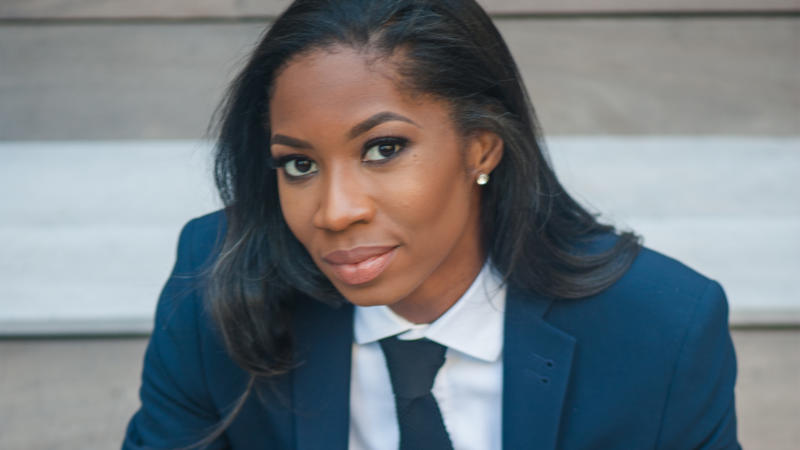Racial Equity in the workplace is more than just a “buzzword” for Coqual and their new initiative, the Black Equity Index (BEI). It’s a legitimate metric that Coqual — who commissioned the Index — hopes will spark what they’re calling “systemic, sustainable change” in corporate America.
Black men and women in corporate America are well aware of racial disparities in the workplace — and unfortunately, they aren’t strangers to being the “lonely only” in the boardroom. What the Black Equity Index — an independent and credible benchmark — hopes to do is “provide greater accountability for companies and their leadership teams,” with the proviso that they have tangible benchmarks to improve their equity efforts year over year.
Coqual launches the Black Equity Index today! This new initiative is designed to drive systemic, sustainable change for Black professionals in the workplace. Learn more at https://t.co/3YbohPjOOn https://t.co/qgbeQBYWYN pic.twitter.com/LtdU6etGhW
— Coqual (@Coqual_) February 23, 2022
Coqual CEO Lanaya Irvin says that launching the Black Equity Index was essential for employers to identify their “blind spots” when it came to providing fair and equitable treatment — and opportunity — for non-white employees.
But how can companies be more accountable for their equality — and equity? How can they be authentic with their inclusivity efforts?
This independent and credible benchmark allows organizations to track progress on Black equity in the workplace and improve their practices across shared principles year after year.
Tina Knowles-Lawson (yes, Beyoncé’s mother) said that these findings were essential for young Black professionals — and she also had some advice for Black men and women looking to navigate the often-treacherous corporate world.
“I have a lot of mentees, a lot of young women and men who I mentor,” Knowles-Lawson said, exclusively. “One of the main things I say to them all the time is that it’s important in a marketplace or the profession that you’re in to find a mentor. Someone who can help you navigate through all the obstacles that come up and that’s had that experience. They can share those experiences with you. So, don’t be shy about asking someone in that field to mentor you.”
She continued: “I think we as Black people sometimes don’t take advantage of that as much as our White counterparts. I didn’t grow up knowing all these people in corporate America that were super successful. My parents couldn’t get on the phone and say, ‘Hey! Can you give my kid an internship?’ If we don’t have those opportunities, we have to make them for ourselves. Try to find someone that is at a corporation and who has been successful and just simply ask them to mentor you. I think it’s super effective.”
AfroTech also had an opportunity to chat with Irvin, who shared some of the most remarkable findings from the Black Equity Index — and she had some invaluable advice for young Black professionals, too.
Editorial Note: Portions of this interview have been edited for clarity and length.
AfroTech: Tell us a little bit about the BEI. What metrics does it use? What does it define as success?
Lanaya Irvin: BEI is a new, independent benchmark harnessing data to drive systemic change and create opportunities for Black talent. The goal is to help companies better understand what they are doing well when it comes to supporting Black talent, and where there are opportunities to be better.
The BEI looks at companies’ equity efforts across six specific areas:
- Advancement
- Accountability
- Representation
- Investment
- Sustainability
- Public Engagement
Success would be seeing companies truly drive more equitable outcomes for Black talent year after year. We want to see talent thrive.
For example, over time we’d like to see an increase in Black people managers, funding of Black-owned businesses, and Black board representation. In future years, we’d like to see hundreds of companies committed to this benchmark annually.
AfroTech: What would you say was the most gobsmacking finding that your research provided?
Lanaya Irvin: BEI findings reveal that only four percent of people managers are Black. Managers are tasked with grooming — developing talent at various levels of an organization. They can have a real impact on one’s career trajectory. So, representation in management needs to improve. In our sample, for some individual companies, this number fell below one percent.
AfroTech: How has the response been from "majority-owned" businesses? In other words, have white-owned companies been responsive to the findings?
Lanaya Irvin: The response has been overwhelmingly positive. Companies made statements denouncing racial injustice. Now, to accelerate real change, they’re in need of tools for measurement and accountability. Coqual data helps them to realize that for Black and Brown talent, Corporate America has been the land of broken promises.
AfroTech: What would you say is the best way that employers, no matter their demographic, can engage their non-white employees in an effective way for maximum results?
Lanaya Irvin: Bring us into the conversation. Empower Black and Brown professionals to be part of reshaping culture and identifying the greatest barriers to their success.
It’s also important to be transparent and communicative with your employees around any targets or goals for DE&I within the company. It helps to build trust.
AfroTech: And finally, what would you say is the one salient piece of advice that everyone should follow in corporate America?
Lanaya Irvin: For Black talent, specifically — in corporate spaces, while it’s important to work hard, you can’t wait around to be seen. You cannot afford to be idle while waiting for managers, peers, etc. to recognize your contributions. Now is the time to harness our collective power, to elevate and amplify one another’s successes. Tap into your network, seek out others who both validate your experiences and can offer honest critical feedback when you need it most.


